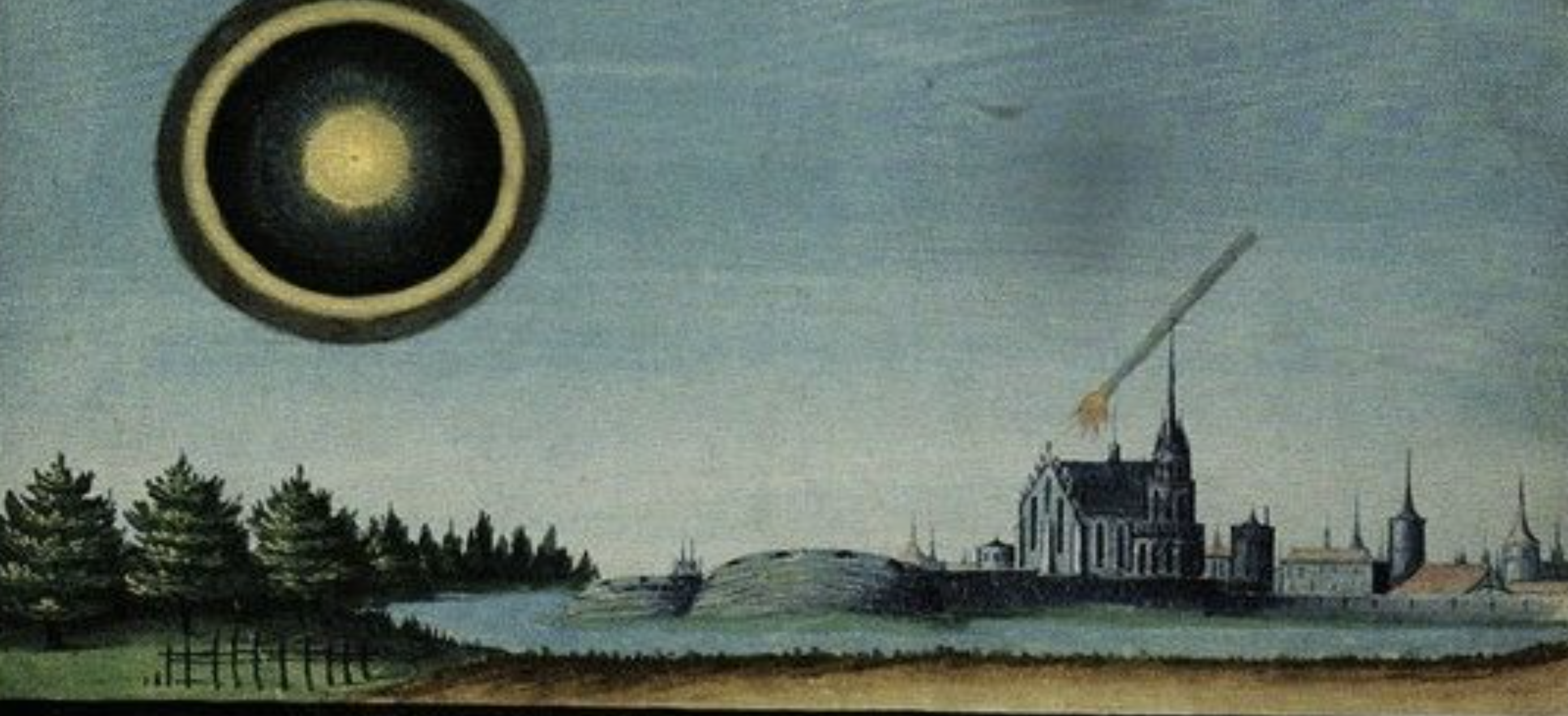I. Brexiternity
In 2016, on June 23, 17.4 million voters, among them English, Welsh, Scottish, and Northern Irish citizens of the United Kingdom, making up 52% of the total, voted to leave the European Union. Brexit! What followed was over three years of indecision, wrangling, and chicanery. As I write — July 2, 2020 — this is still not over. The UK’s membership in the EU formally ended at 11 pm (GMT) on January 31, 2020. The Council of the EU had, the day before, ratified the European Union (Withdrawal Agreement) Act 2020, passed by the London Parliament (Westminster) in the same month. But negotiations to manage the transition have been tense and inconclusive. Reportedly, they have now bogged down. The end of 2020 may well see a so-called hard Brexit. Meanwhile, in a recent poll, 56.8% of respondents said that, if they were to vote again, they would choose to remain in the EU.[1]

As you might anticipate, during this wrangling the “time” of Brexit itself has attracted commentary. In 2019, Denis MacShane, a political commentator, coined a term for its never-ending historical moment: “Brexiternity.” At a first approximation, this refers to the brutally protracted and yet uncertain temporality of the Brexit process as it has unfolded: it was the “culmination of a 20 year long anti-European ideological project,” but that, he said, was “just the prologue. Brexit will unfold over the coming years, if not decades.” At no point had those caught up in the process known just what was coming next, nor would they. All they could know was that the controversy wouldn’t be over any time soon, and that it would be divisive: “So we enter a Brexiternity of conflict.”[2] In its sense of a (non)ending, the term also encompasses the oddly recursive way in which the debate has proceeded. Adamant positions are taken — “Brexit means Brexit,” said Theresa May; he’d be “dead in a ditch,” said Boris Johnson, before he’d agree to a delay — and then abandoned. Or abandoned and then taken up again (the Irish backstop, for example[3]). The result, as Fintan O’Toole puts it, is a kind of time that refuses to keep to a straight line, “a strange meandering, every movement towards a feasible agreement followed by a looping back into previously discarded impossibilities.”[4] Time has seemed more elastic, too. According to some, there is always enough of it to get everything done before (insert: arbitrary deadline); never enough, according to others. The (in)decision is steeped in centuries of history — “It’s Crécy! It’s Agincourt! We win all these things!”[5] — and it is a punctual, unalterable choice that has been made and could now be accomplished in a moment, if only . . .
You can trace this inter-looping time even in the nomenclature we use. Who first coined the term “Brexit”?[6] According to the Oxford English Dictionary,[7] it was Peter Wilding, a pundit who, in May of 2012, inserted it as the last word in a blog post and promptly, he says, forgot about it.[8] In October of that year, though, MacShane was writing in his diary: “In the FT [Financial Times] Philip Stevens uses the word I coined some months ago, ‘Brexit’. It’s a neologism that is gaining currency.”[9] But Stevens, the Times’ associate editor, instead credits the Centre for European Reform.[10] That organization[11] in turn took the label from the BBC, who sourced it from a piece by Douglas Fraser, the business and economy editor of their Scotland bureau,[12] who got it from . . . Wilding? Who knows? The etymology of the term “Brexit” is not incidental to the contention that it names: the hunt for origins that devolves into “forgetting” and widening spirals of attribution betrays Brexiternity’s twisted time.
If some of this seems familiar just now, there is a reason for that. Recent scholarship has not lacked for prescient inquiries into involuted temporality. Brexit is what, some sixteen years avant la lettre, Dipesh Chakrabarty called a “time-knot”: an historical moment permeated by bygone “worlds.” “[N]ever completely lost,” these worlds subsist in our time — or any time — as “fragments,” remnants of times past that we find ourselves “inhabit[ing.]”
But, by putting his finger on such time-knots, Chakrabarty did not mean to imply that they could never be disentangled. Just the opposite. “It is because we live in time-knots that we can undertake the exercise of straightening out, as it were, some part of the knot.” Historical analysis does not stop with the recognition that our present is “noncontemporaneous with itself”; this is where it starts. In fact, he says, this is what allows us “actually [to] historicize.”[13]
Here — by which I mean now, July 6, 2020 — I want to consider what it would mean to “historicize” Brexit, not in a strictly straightforward way, but rather, as Chakrabarty suggests, as an “exercise in straightening out.” The snarled relation in question is that between Brexit, on the one hand, as a nexus of histories, and, on the other, early modern literary studies, as a shifting commentary on those histories.[14] I will ask, not just what implications Brexit has for such studies, but also how these studies might help us think of Brexit in a nuanced way. How did certain critics make sense of British politics in the run up to Brexit, and how can we make sense of that politics, and those critics, in its unraveling aftermath? Following the autobiographical slant of some essays in this volume, and in the interests of specificity, I will reexamine a piece of mine, “Britain Redux,”[15] that straddles the before and after of Brexit in an unanticipated way — unanticipated by me, at any rate. Finally, to show how time-straightening might be applied as a mode of critical reading, even close reading, I will focus on a single scene in Cymbeline, a notoriously British play, to consider how we might be able to loop Brexiternity back into an earlier moment of political controversy, the debate over a union between England and Scotland in the first years of the reign of James I.
Before we reenter Brexit’s slip stream, let’s reflect on what’s at stake for early modern studies. I take it that criticism of this (or any) period requires, precisely, a “period,” that is, a bounded time-space that differs from others in identifiable ways. These units can be of various time-lengths; indeed, some can be quite short, but they must have at least a notional distinction from others. Political criticism requires this sense of period as well, and not just because it is political, but because it is criticism, an analytical operation that cannot proceed without generating alterities. Time becomes disjointed when critics carve it at the joints, as they must. The question, of course, is how to inter-relate the resulting periods. Here, early modern studies offer an array of options. Some critics have, like Chakrabarty, stressed the multi-temporality of the present, its saturation by residual pasts that resist shrinkage into a speciously self-identical moment. As Jonathan Goldberg and Madhavi Menon have said (and Patricia Palmer has echoed in this volume), “the past is never fully over.” Nor, they go on to say, is it ever “fully known.”[16] Goldberg has criticized the tendency to “divide . . . strands” of the past “among previous discrete moments” and then to “draw them in relationship to a consolidated present.”[17] But others have emphasized the uses to which periodicity must and will inevitably be put. What Goldberg calls “discrete moments,” Valerie Traub has pointed out, are periods, and it is periods, in their boundedness, that allow us to make sense of “historical contingency — that is, the ways in which practices, representations, and discourses happen to gather in specific times and places.” And linearity has its own claims to make: “it is also true that time moves on.”[18] Tempora mutantur, nos et matamur in illis (times are changed; we are changed with them).[19]
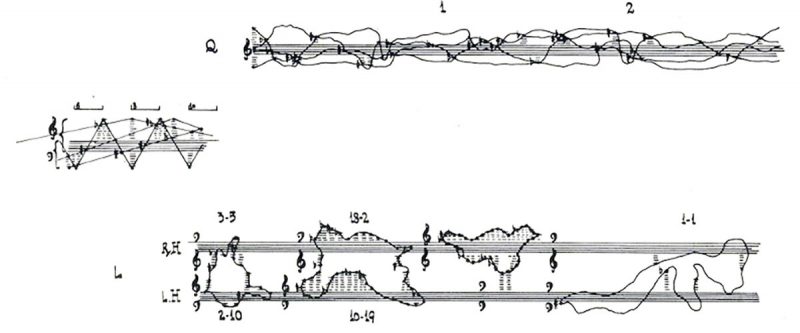
Now, what makes this disagreement all the more consequential is that we know both claims to be true, analytically, but also intuitively. “[M]ultitemporality is not just a matter of theory,” Goldberg insists, “it also corresponds to lived time”. [20] And, that time passes, indeed flies . . . well, any life will bear that out. Here, then, is what I argue: since it is true both that time moves on and that the present is always a composite of past “strands” running into an indeterminate future, our criticism should reflect both of these truths, and especially when it comes to matters of political chronology.[21] On the one hand, linearity is not a time-sense that we will be able to dispense with. To consider just the implications for early modern studies: we know that exegetical approaches, along with the premises that undergird them, will fall in and out of fashion (New: Criticism®, Historicism®, Materialism®, Boredom®[22]), that movements of great intellectual weight will eventually topple, that celebrity and influence are transient, and all such time-honored sentiments. More specifically, we know that practicing such criticism requires a lively sense of two distinct time-continua: the unfolding debate that makes up the disciplinary conversation we enter, and the unfolding of events in our chosen period, the Gunpowder Plot of 1605, say, or the Flight of the Earls in 1607. The critic must track changes along both of these timelines, inter-implicating both, bringing them together in a shared problem space.
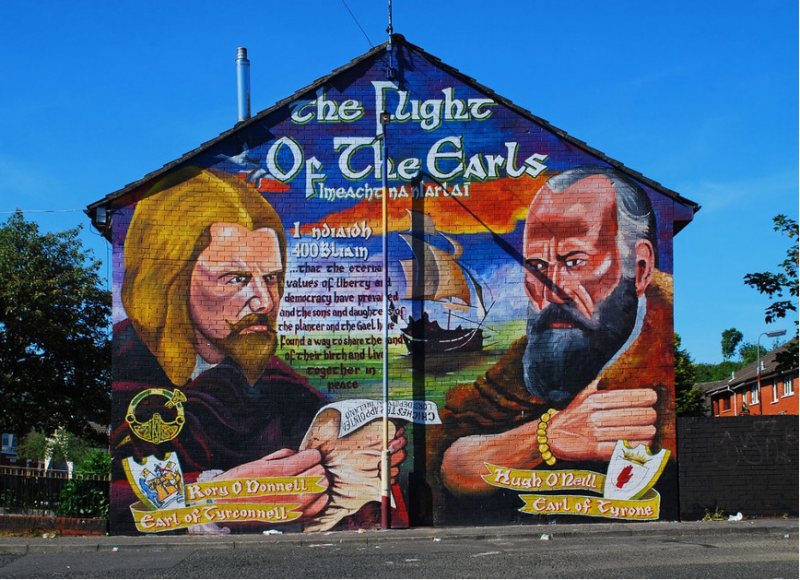
On the other hand, it is just as clear that, as many critics say, linearity is not adequate to the complexities of a given present, a punctum bracketed by a before and an after. Jonathan Gil Harris, for one, calls this the “national sovereignty model of temporality.” It “grants each moment a determining authority reminiscent of a nation-state’s: that is, firmly policed borders and a shaping constitution.”[23] But the unique moment — say, 3:42 p.m. (EST), July 10, 2020 — is about as stable as that nation-state that is currently “devolving” into its constituent parts, the all too (Dis)United Kingdom. The same forces that are at work in that polity — tensions among elements that will not be subsumed in a coherent whole — can be observed in the punctum. It’s not that, in either case, borders cannot be established and policed; they can. But what those borders contain can also always be disaggregated and the borders redrawn. Each moment, we might say, is a Brexit in itself.
One way forward (and backward), I suggest, is to make a key distinction between time (whatever that may be) and various perceptions of time. Temporal organization is ultimately a cognitive affair. Harris gets at this when he points to a “significant disjunction in the meanings of ‘time.’’’ It “can refer to a moment, period, or age—the punctual date of chronology. Hence ‘the time of Shakespeare’ can be demarcated and numerically represented as a finite temporal block (1564–1616, or the sixteenth and seventeenth centuries).” But “time,” he says, “can also refer to an understanding of the temporal relations among past, present, and future. In this sense, the ‘time of Shakespeare’ is not an historical period but rather a conception, or several conceptions, of temporality.” These conceptions can be “both polychronic and multitemporal,” taking the shape of “a preposterous folded cloth in which before and after are coeval.”[24] Of course, we could note that both of these meanings, actually, are conceptions, but that’s the point. The “time of Shakespeare” had no referent before it was delineated as such, but that doesn’t make it any less coherent or plausible, at least as a conception. Any more than the irrefragable complexity of the polychronic moment, as a conception, renders it any less coherent or plausible, just more . . . complex. This is what Chakrabarty means when he says that time-knots are both jumbled and, if not straight, then subject to straightening. Tracing the enmeshment of time and untangling it are both analytical operations; neither should be privileged over the other as a matter of course. In practice, each implies and requires the other. All timelines were once time-knots, and all time-knots are timelines in potentia.

And here is where we approach the politics of the “exercise of straightening out.” I am conscious of a certain passing of time myself. As I write — July 12, 2020 — the world, as Palmer says in her contribution to this volume, “goes to hell in a handcart,”[25] and it’s not just the destination that worries me, but the speed and propulsive forward momentum of our collective handcart. Still, fast as we may be going, we are not leaving the past behind. (In fact, the phrase “go to hell in a handcart” itself may originate in the early modern period; variants date from 1628.[26]) Что делать? (What is to be done?) What sort of temporal modeling might give us the best purchase on the proliferating crises of our day, as time seems to go into overdrive? Goldberg is surely right that the present is always invaded by the past, and thus that neither can be “consolidated” into a fully coherent now or a then. But, as Palmer argues, there is “nothing intrinsically political about simply demonstrating the continuing play of the past in the present.”[27] That is because politics, even of the kind that literary critics practice, requires a time-sense of its own: it must have a way to cleave apart temporal moments (this happened and then that) and also to establish a contradistinction among them (things have gotten better or worse). (This is certainly necessary for what we call “progressive” politics.) We might think of this as the “slicing and dicing [of] the past,” going to work with sharp-edged tools to segment time into time-slices, each then available for scrutiny, though, as I’ve said, I prefer the metaphor of the time-knot and the straightening that does not cut but constructs a timeline.[28]
It’s also true that, as Palmer emphasizes, a politics worthy of the name should be able to assert the contingency of both past and present circumstances (things have been and so could be better or worse); that is what makes it possible to enact change in the moment it occupies. To this I would add that recognizing the fortuity of the now also does not, in and of itself, make for political efficacy, though no doubt it helps. The insight that things could have been different then, and therefore could and should be different now, arises instead mostly from a principled awareness of historical alterity, which in turn requires an analytic that produces (and exploits) such differences. Escaping from what Palmer calls the “teleological trap” — “this present and no other”[29] — does not mean, or only mean, dispensing with temporal linearity and exposing the contingency of today. It also entails drawing out timelines and leveraging the possibilities of one historical moment against another. Both of these are “conceptions” of time, as Harris reminds us, and, for many purposes, neither is to be preferred to the other, as I say. But, in our current state of emergency, it is the latter, I think, that is more likely to be effective than the former. Many of the worst crises of our time — global heating, for example — are exponential in nature, as we learn more every day, to our sorrow and distress. Will simply calling attention to the temporal polyvalence of the present do much to disrupt the progress of our hell-bound handcart? We accelerate towards a future that promises catastrophe without the saving grace of finality. So, yes, like Palmer, I do feel the incongruity of typing these words on this day (July 15, 2020). But then, as William Gibson has written, “The future is there . . . looking back at us. Trying to make sense of the fiction we will have become.”[30] For writers such as Shakespeare, we are that future, and he is our fiction. If we can, we should try to approach him with the same understanding that we hope the future will extend to us.
Source: https://www.mcc-berlin.net/en/research/co2-budget.html
II. Britain Redux (Redux)
In 2014, I argued in an essay titled “Britain Redux” that the literary critical movement known as the “new British history” had run its course. This criticism, which considers the politico-cultural relations between England, Wales, Scotland, and Ireland in the early modern period, had reached an impasse. “Good work is still being done, here and there,” I wrote, “but the energy has moved elsewhere.”[31] Partly this was because the new British history had done what it set out to do; there was now a substantial body of work devoted to the “interactivity”[32] of the various British peoples and their literatures. But, more than that, I wrote, the new British history was always going to founder, sooner or later, on its own contradictions. The domain it posited was multilingual, but its practitioners confined themselves to one language — English. And then, down there in the methodological foundations, was the “problem of deep translation.”[33] Literal translation might well be possible among the British languages, and thus the texts couched in them. But British cultures — or “nations,” as they would have been called in the period — were not as fungible. In the encounters among them, conflicting forces were generated: on the one hand, the centrifugal energy of traditions, customs, and habits of belief intersecting and mutually refashioning themselves. For this dialectic, the new British history was well suited, committed as it was to analyses that were “expansive, multileveled, discontinuous, and polycentric.”[34] But, on the other, there was a centripetal energy, as British peoples, in a reaction to their own interactions, coalesced around notions of the “given and defined nature of their identities, their languages, their cultures.” This, I said, was also a powerful way of making meaning, “just as rich and just as dense as the weave of hybridizing influences”[35] that were being denied. At the time, I thought that this claim, though valid, was too general, and too formulaic, to get much traction. Indeed, I wasn’t sure how I would have applied it myself.
But then (to loop back): Brexit! As sometimes happens, my claims about the early modern period had been exposed to the pressure of current events, and what made sense in 2014 made a different kind of sense in 2016. In fact, I’d go so far as to say that my essay was no longer the same essay. Brexit had not only exposed certain flaws and highlighted certain strengths. It had also rendered it a different entity. The upheaval in the UK had shifted the terms of engagement with the piece, and, as even I could see, what I had thought I meant back then was no longer what “Britain Redux” meant now. Politics, in the form of a decisive, punctual event — a switch point — had shunted my argument along new lines and postponed its arrival at what I thought were foregone conclusions.

As I followed those lines, I noticed three points of self-divergence. First, it had been premature, to say the least, to declare that the new British history was on its way out, or should be. Unlike, say, “presentist” early modern readers,[36] New-British historians and critics had mostly been chary of addressing the present-day implications of their work, beyond noting that such implications existed.[37] In 2008, John Kerrigan, perhaps its most sophisticated practitioner, opened Archipelagic English by noting that “Over the last few years there has been a significant devolution of power with the United Kingdom,” but the future, he said, remained “unclear.” Would the country of England, for instance, “shake off the legacy of Britishness and assert its national identity?” (Presciently, he considered that the “future of the European Union” might provide “one horizon” for the “peoples of the islands to imagine different relationships . . . with the peoples of Europe.”) But, in the event, and despite its hesitancies — “This book is not a manual for devolutionary politicians”[38] — the new British history, with its insistence on plurality and conflict, could be tightly synced with the politics of 2016. Indeed, it had been a harbinger, teasing out the fierce interplay of forces that had reached a crisis point in Brexit. So, I’d been mistaken about that.
But it’s the way in which I was wrong that interests me here. I had assumed that this mode of criticism was organized around a set of claims, and that these claims could be more or less reduced to what these critics had said (or not said) to advance them. And, of course, that’s largely true. Notice, though, that my change of mind came about not because these claims were, in themselves, any more or less valid than they had been, but because Brexit had intervened to cast them in a new light. The notion of a critical position that exists apart from the linear unfolding of events is an illusion. This why all criticism is (eventually) political: not because (or only because) of the commentary it offers on the events of its day, but because time moves on, and the days to come will bring its underlying premises to the surface and reveal them for the politically inflected givens that they are. You can witness this for yourself: go to a library and take off the shelves a “dated” work of criticism, something from decades ago. Its implicit commitments will emerge in sharp relief and you will see a “world” that is not yours, but still time-knotted into it. Indeed, at that moment you are the knot, splicing together the views of your critical predecessors with your own.

Second, after Brexit, I saw a newly apparent salience in my argument and a corresponding lacuna in the new British history. I had claimed that, in Ireland and Great Britain, hybridizing influences had historically produced a strong countervailing need to think of identity as “given and defined.” This had also been amply borne out in June of 2016. “When you strip away the rhetoric,” as O’Toole says, “Brexit is an English nationalist movement,”[39] identity politics par excellence, though other nationalisms — a united Ireland, an independent Scotland — have come to the fore, too. But was this kind of identity drive one that the new British history had been able to sublimate? For the most part, no. Andrew Hadfield touches on this when he says that, in Archipelagic English, there is one “case” that Kerrigan “does not make”: “hybrid identity” should not be “value[d]…more than those that wished to remain static.”[40] Or, to put it another way, early modern Britons who coalesced around the “locally constant”[41] were just as well founded in their sense of themselves as those who were, and who knew themselves to be, more heterogeneous in their origins. As Brexit pointed up, this was quite a lapse. What would it have taken, though, for the claims of the stubbornly homogeneous (then and now) to register?[42] Just the kind of cross-temporal juxtapositions that, post Brexit, we are talking about now (July 17, 2020). It’s hard not to suspect that this criticism’s reluctance to engage fully with the disruptive energies of British politics in the present went hand-in-hand with a hesitancy to consider at least some aspects of the similarly torqued British politics of the early modern past.
The new British history was good at distributing identity across an historical present. It addressed, as I said myself, “less a fixed and distinct domain than an ontological predicament, a knot of conundrums entangling the several peoples who in the early modern period were compelled to share that ‘island group lying off the northwestern coasts of geographic Europe’”.[43] This dialectical approach holds up, I believe. What I had not seen was that inquiries that were “expansive, multileveled, discontinuous, and polycentric,” when applied to the (cultural) geography of Ireland and Great Britain, would need to be polychronic as well, when applied across the timeline of British history. Willy Maley gets close to this when he summarizes my argument in “Britain Redux”: “the ‘new British history’ and imperial history are outmoded, because Empire is over, and a more transnational and multilingual approach is called for in approaching . . . British history.”[44] This is a misreading; I say that the new British history faces the “familiar problems of critical obsolescence,”[45] not imperial decline. But Maley has a point. Because not only does he (re)introduce the notion of time’s passing into what I had thought of as a more or less synchronic exercise, but, more broadly, he reminds us that critical trends play out in syncopation with history itself. The import of the new British criticism was changing and would change along with long-term trends (the decades-long breakup of Britain[46]) or punctual events (Brexit!) but this counterpoint between criticism and chronology was mostly elided, both by me and others. And period-fixity had analytical consequences. Kerrigan, an exceedingly subtle and careful reader, wondered whether by emphasizing interactivity in Archipelagic English he did not “risk undervaluing both the tenacity of grass-roots traditions and, contrariwise, the capacity of broadly held conventions to signify differently on a local basis?”[47] After Brexit, I’d say yes.
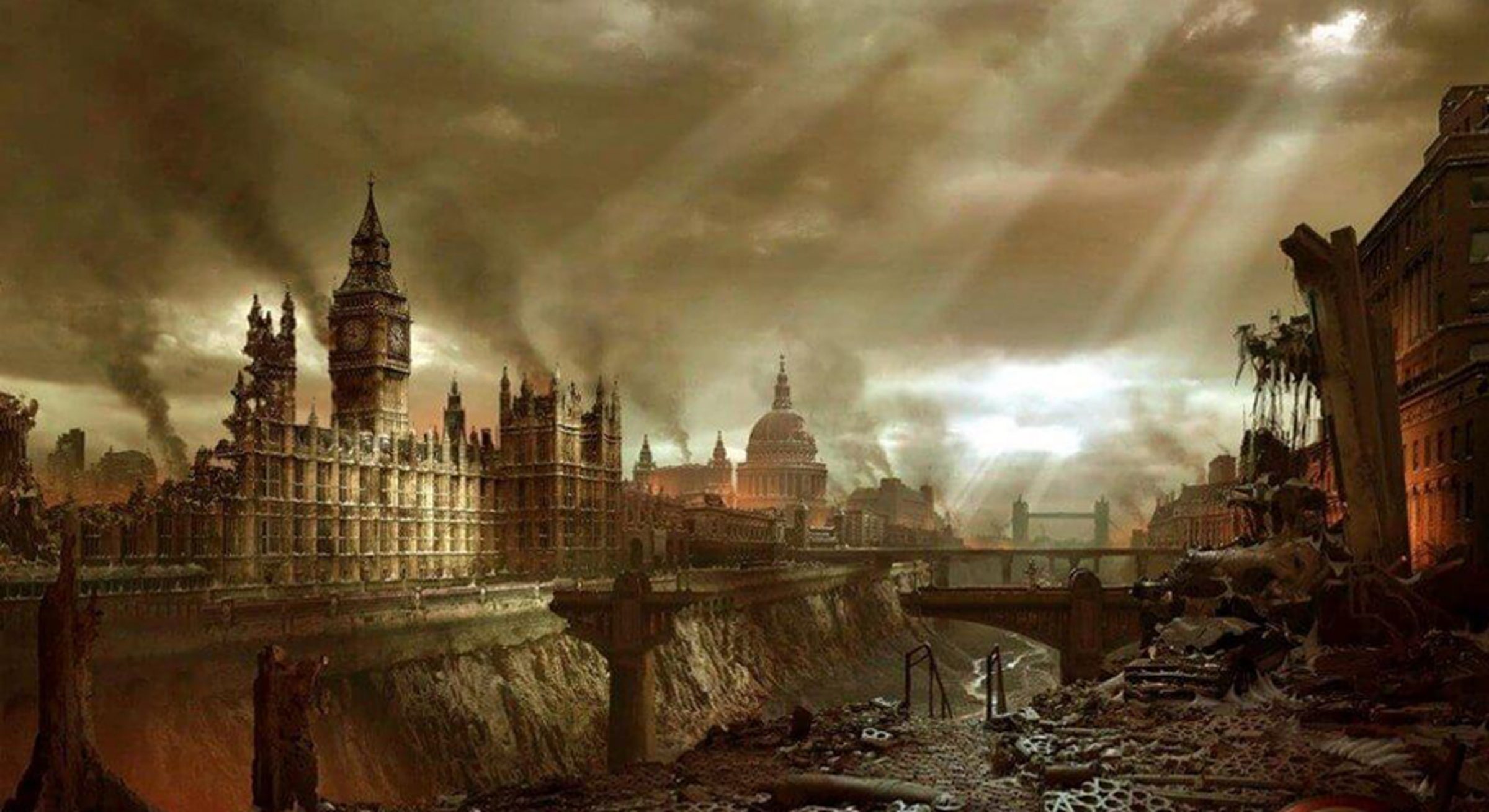
Third, after Brexit, I began to wonder how I (and perhaps others) might have been able to keep the new British history new, that is, how to argue the need for continuous updating vis-à-vis the history of modern Britain. For me, I realized, this would have meant going back to my sources, and particularly to the historiography of J. G. A. Pocock. Today, he is widely recognized as a progenitor of the new British history. His call, in 1973, to “revive the term ‘British history’, and reinvest it with meaning, for reasons relative to the maintenance of a number of historically based identities”[48] was answered by, first by historians, and then by early modern critics.[49] (This includes my own Between Nations.[50]) It is also usual to point out now that Pocock’s call has a history of its own: in 1973, “the United Kingdom” had “turn[ed] its back on the Commonwealth and join[ed] the European Economic Community.”[51] But what I hadn’t realized until I went back and reread the essay, “British History: A Plea for a New Subject,”[52] was how strikingly this was true. The piece is, if not exactly reactionary, nonetheless clearly a reaction to the merger of British and European markets. In one essay, Pocock claims to have forgotten just how much this union prompted his call for a new British history: “I am not sure I remember.”[53] Es ist aber ganz und gar unmöglich, ohne Vergessen überhapt zu leben (Without forgetting it is quite impossible to live at all).[54] From the vantage point of 2005, however, Pocock — an antipodean himself — allowed that, “[i]n retrospect, the 1973 proposal for a new British history” was motivated by his sense that the UK’s entry into the EU “entailed the negation of [New Zealanders’] historic existence as neo-Britains, and of any account of British history in which we had a part.” The “turn towards Europe . . . left it unclear whether this implied the acquisition of a new history or the abandonment of any history distinctively British or English.”[55] The new British history was meant, then, to forestall that abandonment, to provide that distinctively British (or English) history, and resistance to Europe and its impositions was always at the core of the project. What concerned Pocock in 1973, was, just as he said then, “identities” and the “maintenance” thereof. The idea that the English “were at heart Europeans all the time” is an “obvious absurdity.” If it were to take hold, he speculates, “it is not altogether beyond the bounds of possibility that ‘United Kingdom’ and even ‘Britain’ may someday become . . . inconvenient and be annihilated, or annihilate themselves, in their turn.”[56] At this post-Brexit juncture (July 20, 2020), when the devolution that Pocock feared is within sight,[57] it’s worth reminding ourselves, not only that he foresaw this, but that he thought that this would eventuate when the British (or English) had deliberately forgotten who they were, who their history had made them, and had surrendered their sovereignty to an “association of recently defeated states compensating for their loss of extra-European empire by constructing a shared and highly globalized economy.”[58]

I say this not to indict Pocock. He was, to be sure, “no friend of continental contexts,”[59] and he said so, often and without evasion.[60] But where was Europe in the new British history, the criticism that derived so much from him? In 1999, Maley and I noted that the “matter of England’s ‘Europeanness’ has not been broached much, either in Britain or the United States,” and that this was to be expected. “British history is a history of forgetting. It often excludes Europe.” But, we suggested, “Pocock has already shown the way” by characterizing the “so-called ‘British Problem’” as a “drama played out across several centuries” and continents. This might even serve as an “approach to questions of culture and identity in the early modern period as a whole.”[61] In fact, Europe continued to be at the forefront of Pocock’s mind. And the new British history? Not so much.[62]
But suppose that, in some counterfactual universe, this criticism had continued to engage with the thought of this historian as it evolved, and not just consigned him to an originary role? Then Europe might not have remained such a blind spot, and, more consequentially, the new British history might well have found itself compelled to grapple with a problem that Pocock, to his credit, did not avoid: how to reconcile the “resistance to . . . hybridity”[63] with the fact of hybridity? Just because of his commitment to a non-European Britain, this was a dilemma Pocock had to confront. In 2005, he argued that “any long-standing political community,” including a nation such as England,
needs two histories, recounted in narratives which should be perpetually confronted but are distinct. One is the narrative of how its members have interacted with each other in order to produce it and conduct its affairs; the other that of how they and it have interacted, or failed to do so, with those internal and external who are not included in it.[64]
It is just this dialectic between self-defined insiders and outsiders that the new British history could sometimes sustain when it considered the early modern period, but was mostly unwilling to transpose to the present, the period in which we critics actually lived.
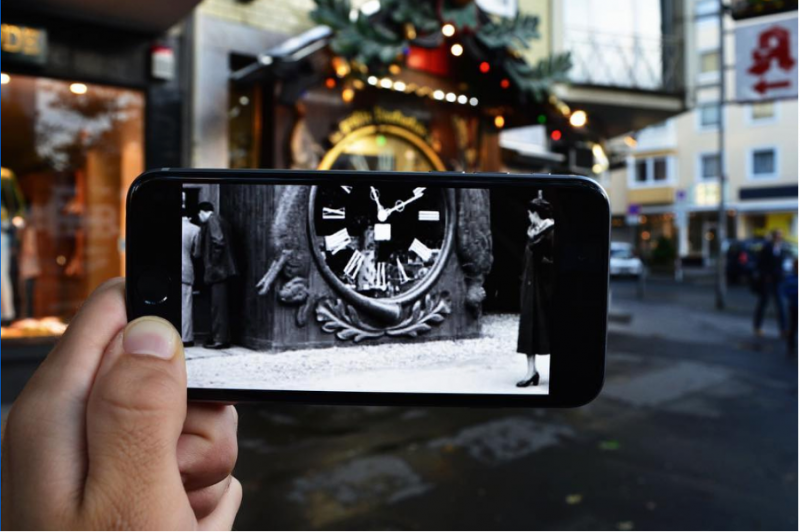
Now, it would be fair to say that this is a misplaced charge. The purpose of the new British history, or any period-centered criticism, is not to serve as a barometer for current events — Brexit! — or even to offer a commentary on them. In these pages, though, we are thinking, perhaps speculating, about what it would mean for the literary criticism of our period to have, or to take on, a political edge. Pocock himself did not shy away from this question. The “British problem,” he said, was always and only a problem. In fact, the “business” of British history is “to problematize itself,” to perpetuate that problem, and to resist the closure that tries to halt (or ignore) the shifting relationality that is intrinsic to all identity. “[I]t is for this reason,” he said, that “‘new British history’ can be regarded as politically suspect from every point on the spectrum.”[65] In practice, the resistance to the new British history mostly came from the so-called Brito-sceptics, who saw in it “nothing but ‘old English history’ in ‘Three-Kingdoms’ clothing’,” preoccupying itself with “events that have always been regarded as pivotal in England’s history.”[66] But Pocock is right, I think, to say that the new British history, when it is consistent with its own methodological principles, will always be more interested in the fluid than the fixed, in the diverse than the homogeneous — without abandoning the fixed and homogenous as inevitable outcomes of fluidity and diversity.
That Pocock was something of a Eurosceptic does not detract from that insight. Indeed, it was his commitment to an exclusive Britishness that led him to that insight. In the same paragraph where he asserts the need for “two histories . . . perpetually confronted but . . . distinct,” he assails those who would “deprive all [Britain’s] components of their sovereignty in their history, and reduce them to autonomous regions of an acephalous empire known by the name of ‘Europe.’”[67] Identity claims — and this includes Pocock’s — arise not when we recognize ourselves for who we are, but when we intuit that our being is contingent. From the start, it may be remembered, Pocock was concerned not so much with who the English were, but who they thought they were, or, rather, who they had deluded themselves that they might be. “Within the memory of everyone here,” he said at University of Canterbury in 1973, “the English have been increasingly willing to declare that neither empire nor commonwealth ever meant much in their consciousness.” Thus the absurd claim — absurd to the assembled New Zealanders — that “they were at heart Europeans all the time.” That this was “psychologically possible” dismayed Pocock.[68] Self-severed from the history that, for better or worse, was their own, the English had slid from one pole of an opposition (“English”) to the other (“European”), when what they needed to do was the hard work of staying somewhere in the contested middle, living with their own tensions. But Pocock was not at all sure if the English could do this. As he said later, “a ‘British history’ of the English is much to be desired; it should be constructed by the English themselves; but it would be unwise to hold one’s breath.”[69] To the extent that the new British history has a political position, I’d say it is this: outside of the self-interested claims of the English (or, I suppose, the Welsh, Irish, or Scots), but inside them enough to express those claims and render their authorizing history legible.
An example of how not to espouse this position can be found in remarks that Pocock has recently made about Brexit. In 2016, just after the referendum, he said:
Profoundly anti-democratic and anti-constitutional, the EU obliges you to leave by the only act it recognises: the referendum, which can be ignored as a snap decision you didn’t really mean. If you are to go ahead, it must be by your own constitutional machinery: crown, parliament and people; election, debate and statute. This will take time and deliberation, which is the way decisions of any magnitude should be taken. The Scots will come along, or not, deciding to live in their own history, which is not what the global market wants us to do. Avoid further referendums and act for yourselves as you know how to act and be.[70]
There is something oracular about this, even vatic. In 2016, the opponent remains the EU, but the English, who in 1973 were signing away their national birthright, trying in vain to be the Europeans that they were not, have now coalesced into a hard core of identity — a “you” — with a single intent, a self-enclosed history, a time-honored constitutional apparatus, and a healthy sense of distinction from the Scots (the Welsh or Northern Irish get no mention). Like the Scots, the English must now cleave to “their own history.” Presiding over it all, a grim abstraction: the global market. In this mise-en-scène, the English have, and they know that they have, their own collective mind, what it is they “really mean,” and they are counterpoised against an equally univocal foe with “wants” of its own. In 1973, Pocock saw joining the EU as an act of self-annihilation, perpetuated on themselves by the English, who didn’t know, or didn’t want to know, their own history. But, in 2016, as the United Kingdom begins to leave the EU, history and identity are, at last, fused: the English are indeed what they “know” themselves to “be.”
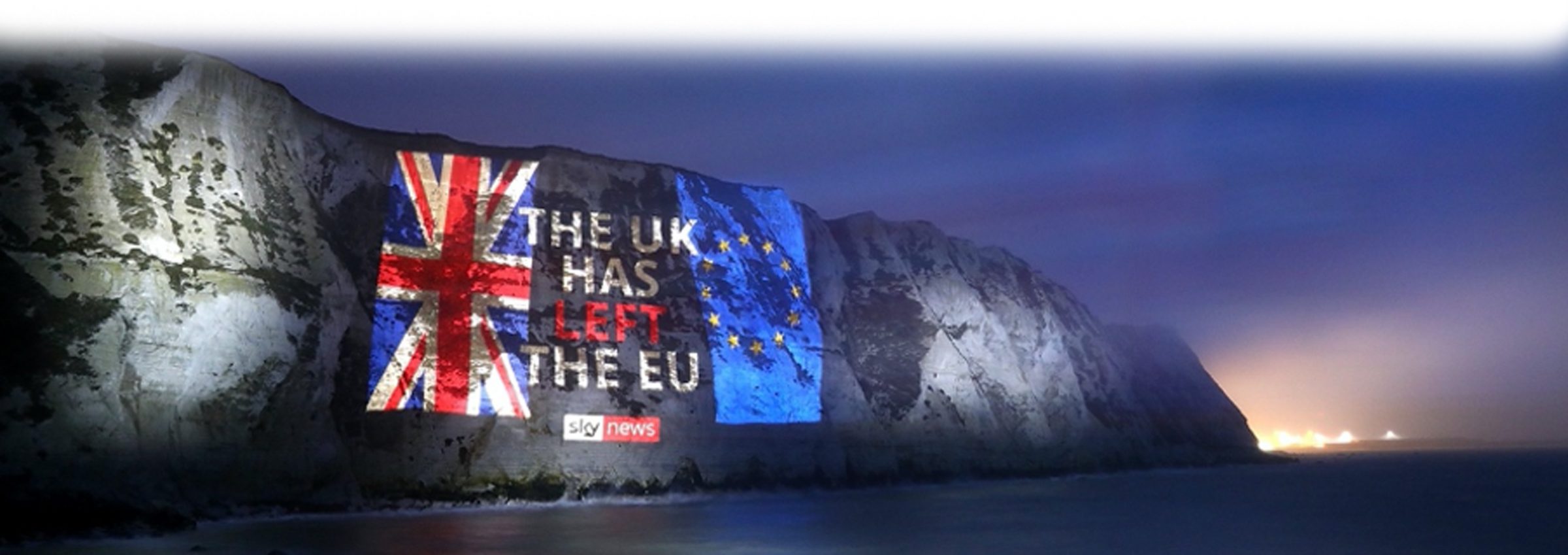
To these declarations, it is hard not to apply the multi-vectored analysis that Pocock himself pioneered. Surely it was his point, in 1973 at least, that the English did not know who they “really” were, that their self-understanding was flawed and contradictory? And that the English, no more than the Scots, could not just go their own way, since “Britain” was an ensemble of inter-implicated pieces where, as Macbeth puts it, every act “but teach[es]/Bloody instructions, which being taught, return/To plague th’ inventor”?[71] And we were to understand, were we not, that the histories of the “British” peoples were and are irretrievably entangled, making reductions like a self-subsistent English “you” impossible to contemplate? Well, yes, we were, then, but maybe this misses the larger point, one that has become clearer as the years pass. The English “you” in Pocock’s pronouncement, notice, takes on its rigidity because it is staged in the presence of an “Other,” the globalized EU. In 1998, in a nuanced discussion of the “geometry of Self and Other,” Pocock argued that the “ruling free people” of England “has to be persuaded that there is a history of its rule, which it may not know or want to know, as well as its freedom, which it does know and wants to go on affirming.”[72] Typing this quotation (July 30, 201), I want to take out the “it,” that singular English entity that seems to exclude the other “British” entities. But there “it” is, and “it” must be reckoned with. This “it,” says Pocock, has a history whether “it” knows it or not, but “its” will-to-freedom is a constant. Perhaps, then, for Pocock the difference between 1973 and 2016 is not so much ontological (whether a distinctly English history exists) as epistemological (whether the English know they have such a history). In the former year, the English had managed to “forget” their heritage, while in the latter they have come to “remember” it. Their constant impulse towards “freedom” might sometimes float free from historical self-understanding, or it might be grounded in it. Pocock, an historian, naturally prefers that their identity finds its roots in the earth of their own past.
But this historian, remember, also tells us that there are always two histories to be written, one turned inward on “us” and “our” narrative of how “we” have interacted with each other, and the other outward, of how “they“ have interacted with “us.” These histories should be “distinct,” though “confronted,” he asserts. But here they are not; Pocock has conflated them, reminding the English of their storied past and invoking the perfidious EU in equal and indiscriminate measure. One has a history; the other does not, or not one that matters. This is a lapse, and it shows just how crucial it is to maintain the analytical precision that Pocock himself recommends. What keeps Pocock’s Euro-skepticism from sliding into Euro-phobia, I have always felt, is his willingness to withhold closure, to hold competing claims in dynamic tension with one another. But here there is a sense that an endpoint has been reached, alleviated only by the acknowledgement that “time” will have its own judgment to render. And so it will. Whatever happens, though, it will not be a simple and inevitable outcome of the referendum on June 23, 2016. It will be display the ramifying temporality and multi-causality of Brexit itself. As Pocock himself has observed, in one of those suggestive but slightly opaque apercus that distinguish his prose, “there is always an interval in time sufficient to produce heterogeneity in effect.”[73]
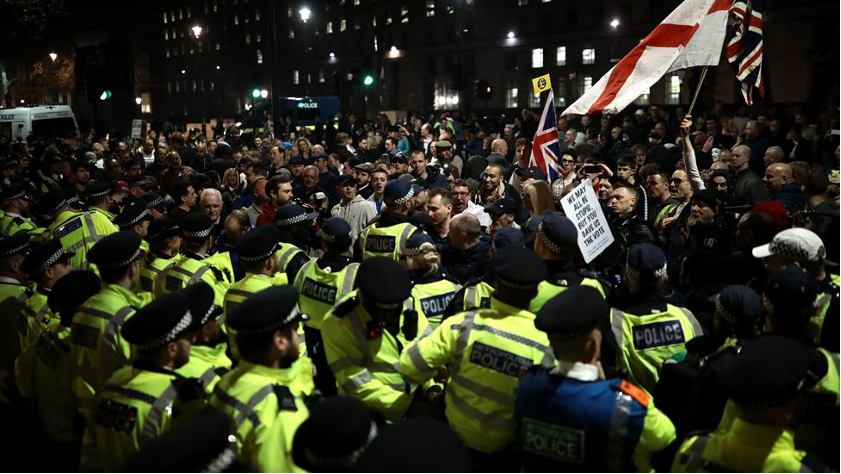
III. Strange Cymbeline[74]
Recently, O’Toole has taken a phrase from Raymond Williams to argue that a “‘structure of feeling’ . . . underlies Brexit,” a “defiant insularity” compounded of “a strange sense of imaginary oppression,” “a deep sense of grievance and a high sense of superiority.” O’Toole’s telling point is that the mentality he ascribes to some Brexiteers, especially among the elite, follows from their inability to distinguish now from then. Their past is forever collapsing into their present, dooming them to re-enact bygone triumphs and defeats over and again. “The sudden reappearance of ‘vassalage’,” for instance, as a feared outcome should Brexit not come to pass, “tells us that in the English ruling-class imagination, the Hundred Years War — which was all about vassalage — is still being fought.”[75] But this is nothing new. As Linda Colley has put it, impulses towards Englishness have “always” had a certain emotional cast to them: “a cleaving to the small and the relatively known in the face of alarm or fatigue or disgust at the prospect of the very large and very strange.” This was true, she says, even at the height of “unparalleled imperial dominion.”[76] All the more so, we might think, at a time when some feel that “[t]here are so many forces operating at present to take ‘our’ history from ‘us’ and deconstruct ‘us’ as historical beings.”[77] Here is a time-knot to unpick, but one too intricate for this essay alone. In lieu of that, I will follow two strands, two performances of Cymbeline, to see where (and when) they lead. Without reducing them to instances of a recrudescent Englishness (as Colley seems to), how can we find them in time?
Let’s start with the more recent production of the play. In April of 2016, a few months before the referendum in June, the Royal Shakespeare Company put on a production of Cymbeline. The performance was au courant, and deliberately so. The set, an urban wasteland, adumbrated what Britain would be post-Brexit: “decadent, decaying, litter-strewn and neglected,” in the words of the director, Melly Still.

Wales was represented by a hole in the ground (literally). Europe — or, at least, Italy — came off much better: smart suits and polyglot banter, with Shakespeare’s lines projected above the stage. For the English themselves, though, the outlook was dire. If Leave voters prevailed, the program declared, “’Little England’ will be left shouting on the sidelines, shrill and irrelevant.”[78] This message was not lost on reviewers, one of whom commented that, “When Cloten says, ‘Britain’s a world by itself and we will nothing pay for wearing our own noses,’ he sounds uncannily like Boris Johnson.”[79] At the time, the “contemporary resonances” of the performance “on the eve of a referendum”[80] were clear. “I would very much like to have seen this production on June 24,” Rachel Ellen Clark later said in a review for Early Modern Culture, “immediately after the Brexit vote.”[81]
But what if she had? Again, this would not have been the same production of Cymbeline that she saw, and not because, according to our hypothetical, the production itself would be different, but because the audience would be. In the months after Brexit, the RSC continued its performances in other venues, and now reviewers began to pick up on incongruities. “I know where I’d rather be,” said one about the Italian scenes, “and that’s just what the production wants you feel.” Unless “you’re a crazy Brexiteer,” the ending might elude you: “resubmitting to the power of the conquering Roman Empire,” as Cymbeline does, “isn’t quite the same thing as joining or leaving the EU.”[82] (As Clark also noted, “the European Union is not,” after all, “a conquering empire, like Rome.”[83]) Crazy Brexiteers, you see, are equipped with a decided one-size-fits-all take on the political situation; you, the wised-up post-Brexit spectator, are not. Now, it’s the contradictions, theatrical and otherwise, that you notice. And the set? “The decision to hurl events into some unspecified dystopian near-future is hard to understand,” opined another critic, though perhaps it’s “a foretelling of a ‘divided Britain’ with ‘echoes of Brexit’, which is more than a stretch.”[84] What’s changed, of course, is not reviewers’ understanding of the point of the RSC’s Cymbeline, but their willingness to accept it. The production’s governing analogies no longer work for them. Does Cymbeline’s final submission to Rome compare to “joining or leaving the EU”? The puzzlement seems exaggerated, almost deliberate (it’s surely not like leaving), but there’s a knowingness to these responses: “that’s just what the production wants you to feel.” And what these reviewers know, now, is that a “Roman [EU] and a British ensign” shall not “wave/Friendly together”[85] in the future they have inherited. There is a distinct before and after to their experience, although these have come together in a time-knot that they must straighten — if they can.
Try, for instance, as they may have, to make a coherent timeline out of this sequence: the prophecies of Shakespeare’s Cymbeline, set in post-Roman, pre-Christian Britain, are spoken on a stage in early Jacobean England, in 1610, the year of its first performances.[86] Projected forward from Britain’s primordial past to the early modern present, these auguries are meant to foretell, at the end of the play, the coming of James I’s latter-day Britannia, or what in 1607 he called a “perfect Union of Lawes and persons.”[87] Which didn’t happen. In 1610, when a soothsayer reads from a “label” left on Posthumus’ “bosom” — “[T]hen shall . . . Britain be fortunate, and flourish in peace and plenty” (5.5.429, 439-441) — he is predicting a future that is already behind (and also before) the audience. In 2016, the RSC repurposes these already ambiguous and belated lines to militate for a future Brito-European union, just before that future collapses into an unexpected present, rendering prognostication moot and the audience, or at least some of it, baffled and chagrined. Brexiternity indeed.
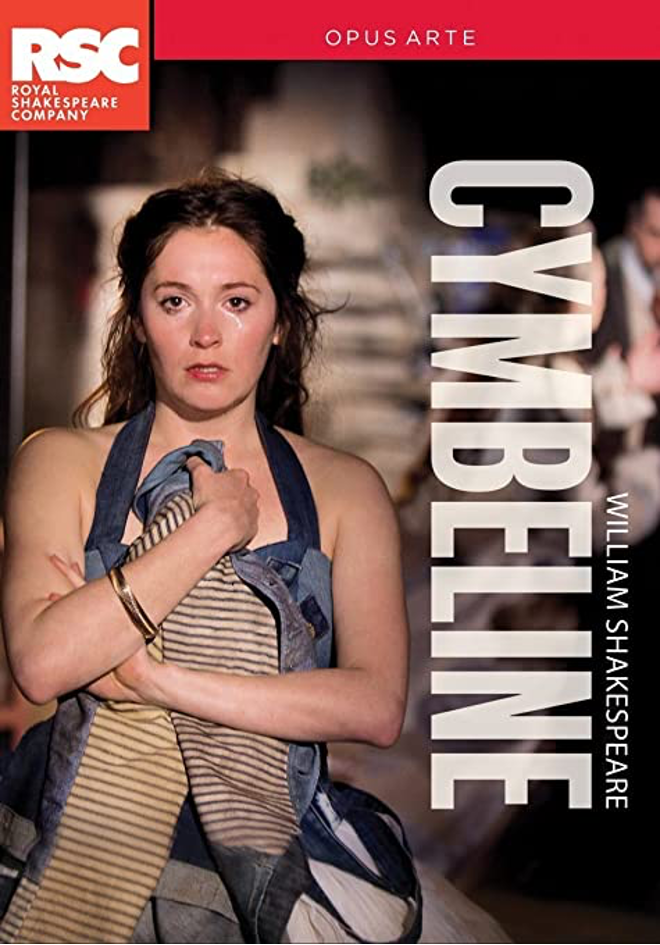
I think we can infer a similar syncopation in the time of the audience’s response to Cymbeline in 1610. Consider Act 5, scene 3. It consists mostly of a fraught exchange between Posthumus, who has just come from a battle between Romans and Britons, and a lord, who acts as his interlocutor. Posthumus does most of the talking. First, he narrates, in heightened and emotive terms, a decisive turning point: the Britons, flying before the Roman legions, are halted in a “strait lane” by an old man and “two striplings.” “Stand, stand!” (7, 19, 28), they urge, and the Britons do, chasing the Romans like “Chickens” back along the “way which they stooped eagles” (42). Then, when Posthumus’ story does not meet the reception he thinks it deserves, he explodes, accusing the lord of “wonder[ing]” at it and putting “me into rhyme” (53, 63). Perplexed, the lord exits. And, in fact, we are likely to find the exchange rather odd, too. Onstage, we have already seen the incident Posthumus relates, though it lasts for only three lines (5.2.11-13), and so his narration can seem redundant, if not inflated. The lord says next to nothing, but still somehow manages to throw Posthumus off balance, rhetorically and emotionally. And there is a marked difference between the language of Posthumus and of the lord: vivid and yet strained in the first case, laconic and yet suggestive in the second. The lord’s lines seem to act in some manner as pivots, shifting the implications of the scene in several directions and giving it an abrupt and off-kilter rhythm.
The first question occurs just as Posthumus’ story is getting underway, the Britons fleeing down the lane before the Romans, but now jammed together as their enemies hack at them from behind. “Where was this lane?” (5.3.13), the “Briton lord” asks. That this is a British lord points up something that critics have long known about Cymbeline: that it is, perhaps more than any other of Shakespeare’s plays, bound up in the questions of what Britain was, historically, and what it is, currently, or could be. As Valerie Wayne notes, “Cymbeline uses forms of ‘Britain’, ‘Briton’, or ‘British’ 52 times . . . and it never refers to ‘England’ or the ‘English’.”[88] (Arriving in Italy, Posthumus becomes known as “The Briton Reveller” [1.6.59]). Questions of Britishness were especially salient at the time, of course, because James I was on the throne of England, and because he, since the beginning of his reign in 1603, had been promoting a union between England and his native Scotland. Critics disagree, however, on what exactly the debate meant for Cymbeline, and this disagreement turns around a question of chronology. For Kerrigan, the play’s 1610 debut is relevant because it falls after 1607, by which point, he says, James’ plans for “union were rejected by the House of Commons.” The play is therefore a “knowing, consciously syncretic [piece] of tragicomedy.” It registers the “failure” of union and expects from its audience an “insouciant . . . familiarity” with the terms of this now abortive controversy.[89] Wayne, though, thinks that this is premature. She counters that “further research indicates that James had not completely given up on accomplishing his long-desired union by early 1610,”[90] that negotiations were ongoing. For Shakespeare and his audiences, she implies, the “question of Britain” was still open, and was not belated, but pressing.
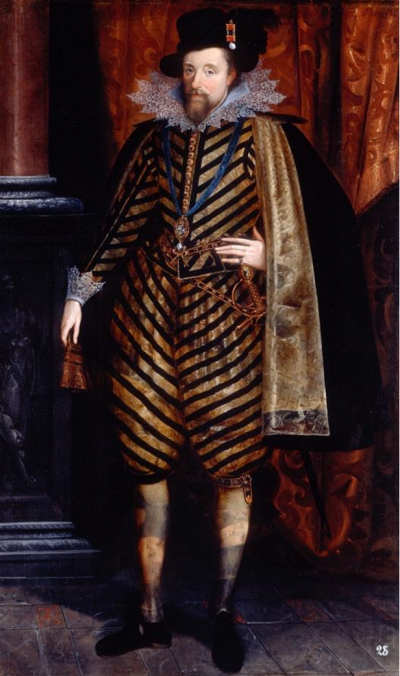
So which was it? If the debate over Britain was a settled matter, with the longstanding divisions among the British kingdoms or domains now cemented in place, then we would not be surprised if Cymbeline was a retrospective play, relying, just as Kerrigan says, on a wearied “knowingness” in its spectators. A scene like ours might expose James’ now defunct aspirations to condescension, tacitly expressed, of course. But if the debate was live, at least in the mind of the king and so to the political class, then we would think to see these matters handled with a sense of urgency, of topicality, as if a British union were a real possibility. It’s likely, though, that neither of these options does justice to the polychronicity of this moment. In 1610, the king is, perhaps perversely, committed to furthering his hopeless project several years after it has been rejected. Very few think that anything will come of this idée fixe now, yet, still, it has the force of the royal will behind it. This might explain the peculiar tensions of the scene: on the one hand, vociferous exaltation of Britishness, on the other, resigned skepticism about just these claims. The question, really, is about the time-sense that the audience brings to the theater. If Kerrigan is correct, then what they “know” is that the whole affair is behind them. If Wayne is correct, then what they “know” is that it isn’t. But neither critic seems to hit exactly the right note. The posture the scene expects from the onlookers, I would say, is bemused exhaustion with a political agenda that has taken on a life of its own, and that persists, zombie-like, long after it should have died.
You can see these conjoined impulses in the dialogue, such as it is, between Posthumus and the Briton lord. Posthumus is at pains to establish the intervention of the old man and the two boys (whom we know to be Belarius, along with Cymbeline’s sons, Guiderius and Arviragus, all exiled in Wales) as a decisive moment in the shaping of a proto-Britain. Posthumus, as several critics have observed, has something of James I about him. “His surname, Leonatus — born of or under the lion — suggests James’s well-known device of the Stuart lion; the king was fond of comparing the Scots to his own heraldic animal.”[91] Certainly, he prosecutes a similar strategy. The “strait lane” in which the “ancient soldier” (5.3.15) and the two boys make their stand is located in Wales, and everything Posthumus says seems calculated to localize what he describes, to isolate it as a punctual event in the history that will culminate in the incorporation of Wales into the English kingdom in 1535 and 1542, a key step in the formation of a British union.[92] The battle can also be taken as a signal military victory over an external foe: the Romans exalt in their “slaught’ring” (8) before they are repulsed by, as the Queen puts it, “the natural bravery of [the] isle” (3.1.18). Posthumus does what he can to show that the fight and its outcome are both time and site-specific. The three warriors, he says, were “Accommodated by the place,” rendered “charming” — that is to say, compelling — by their “nobleness” (5.3.32,33), but also by the layout of the terrain, which they exploit tactically.
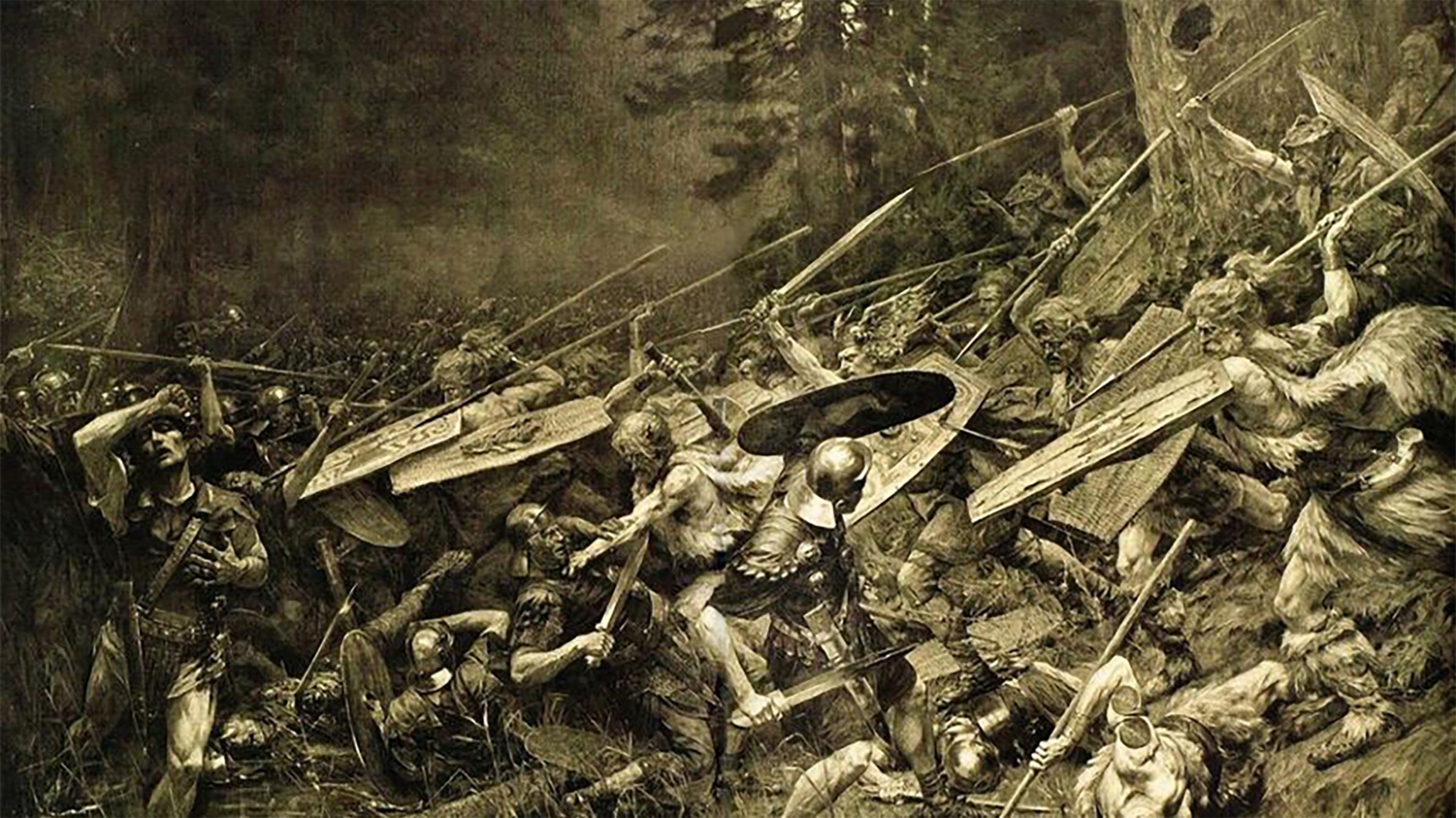
Posthumus gives us a precise sense of the forces arrayed during the engagement. But he seems just as concerned with the passions of the combatants. He maps his geometry onto a violent emotional contest, where the most “full-hearted” (7) have the decided advantage, but where, for the combatants, feeling, place, and action are all interdependent. His description of the Britons, dying in heaps, with the Romans pressing behind, has just this mix of reportage and crowd psychology:
Some mortally [wounded], some slightly touched, some falling
Merely through fear, that the strait pass was dammed
With dead men, hurt behind, and cowards living
To die with lengthened shame. (10-13)
It’s this passage that triggers the Briton lord’s question — “Where was this lane?” — and at first it receives a literal answer: “Close by the battle, ditched, and walled with turf” (14). But, for Posthumus, it is more important, it seems, to stress that fear on the battlefield is contagious, but bounded. It ebbs and flows and reaches a crescendo, then collapses, depending on the disposition of bodies across a landscape. Some of the Britons are indeed dying, but some are falling in terror “Merely” because they are alongside the dead. When the Romans can see the “backs of Britons” (6), they slaughter with renewed joy. But when the Britons turn and fight, “Having found the back door open/Of the unguarded hearts, heavens, how they wound!” (45-46). The old man and the boys can change the course of the battle because of an accident of geography: the narrow lane compacts the Britons together, inducing mass cowardice. But it also allows them to flip the script. Because the Britons are jammed together, they cannot help but hear the trio as they yell “Stand, stand!,” which, of course, they are doing, because they are held in place by the press of their own bodies and the straitness of the lane. The command of the three heroes converts their passivity into activity: they are “standing,” and, if they can do that, then they can fight back, and so they do. Posthumus emphasizes the multiplier effect of their rhetoric: although they are but three, they are “Three thousand confident, in act as many” (29). And because of their example, ten Romans are chased by one Briton, and “now each one the slaughterman of twenty” (49). Here, the bravery of the trio takes on a theatrical hue. They are “three performers” (30), says Posthumus, and they have “faces fit for masks” (21). Indeed, they momentarily play a part — of the enemy. If the Britons will not turn, they declare, “we are Romans” (26), and they will attack the Britons themselves. What Posthumus describes is, in effect, a play, one in which the spectators respond with all of the fervent love of Britain that they are meant to.

The Briton lord’s baldly literal question, however, has little to do with this invocation; he simply wants to know where this all took place. Though, in actuality, this is not as simple a question as it seems. The geography of the scene, as critics have often noted, is overdetermined. On the one hand, it is set in Wales, and the play makes a great deal of its Welsh location. Milford Haven, where the first Tudor king, Henry VII, landed on his way to Bosworth, is mentioned 15 times. But, on the other, as Kerrigan points out, Milford Haven was located in Pembrokeshire, which was known at the time as “little England beyond Wales” because of its many English, Flemish, and Irish émigrés. It was seen as “removed . . . from England but also part of it” (Kerrigan also says that “the play has no bona fide Cambrians” in it).[93] Moreover, Shakespeare drew on several sources for his account of this battle: possibly Tacitus, who mentions a similar rout inflicted by the Romans on the army of Boadicea (this would have occurred in England somewhere between London and Shropshire), and certainly Holinshed, who placed the strait lane, not in Wales or England, but in Scotland, then under King Kenneth, with Scots contesting not Romans, but Danes.[94]
The Briton lord’s query, then, initiates a chain of associations that soon take us away from the precisely determinate locale of Posthumus’ rendering. Where was this lane? And this in a play that includes famous declarations of British autonomy — “Britain’s a world/By itself” (3.1.12-14), insists Cloten — but that is also permeated by an extra-British, indeed European, politics. “Prithee, think/There’s livers out of Britain” (3.4.138-139), says Imogen, and the play ends with a submission by Cymbeline to the Romans, the very foe whose defeat Posthumus celebrates. The Briton lord’s question, which seems so narrow, is really wide in its implications, and what it intimates is sometimes in harmony with James’ British dispensation — brave Scots! — and sometimes not — triumphant Romans! Nor would these implications have escaped the spectators offstage. Unlike the exultant Britons onstage, they — at least the more canny among them — could not help but be aware that this was a skirmish in a struggle that the British would lose to Rome. And it was one that could be seen as occurring at several points on the map simultaneously: Wales, England, Wales masquerading as England (and/or vice versa), and Scotland, with further international ties to Denmark and Italy. Britain as a defined geographical unit with an illustrious military history? Or Britain as an inchoate congeries of locations with a history of defeat?
These tensions may also explain why the scene takes the puzzling turn that it does next. “This was a strange chance,” responds the Briton lord to Posthumus’ dilation, “A narrow lane, an old man, and two boys” (5.3.50-51). His rejoinder seems nothing more than apt; there is even a certain literalist poetry to it. But Posthumus is enraged.
Nay, do not wonder at it. You are made
Rather to wonder at things you hear
Than to work any. Will you rhyme upon’t,
And vent it for a mockery? Here is one:
‘Two boys, an old man twice a boy, a lane,
Preserved the Britons, was the Romans’ bane.’ (53-58)
His general point seems to be that the Briton lord is a do-nothing soldier. But his specific complaint goes to the lord’s response. Here, the play adds a term to its affective register. By “wonder,” Posthumus appears to mean what Stephen Greenblatt identifies as a distinctly early modern mode of reception, “an instinctive recognition of difference, the sign of heightened attention . . . in the face of the new . . . . The expression of wonder stands for all that cannot be understood, that can scarcely be believed.”[95] The lord finds the events narrated “strange.” But this, of course, is exactly the problem: the Briton lord has not reacted to Posthumus’ war story with the rapture he expects (that is, he has not replicated the change of heart shown by the British soldiers in the story itself). Rather, he responds — or, at least, Posthumus hears him as responding — with an overwhelmed bewilderment that takes this episode in British history not as a precedent of things to come, but as a “chance,” some new, perhaps random occurrence that “can scarcely be believed.”
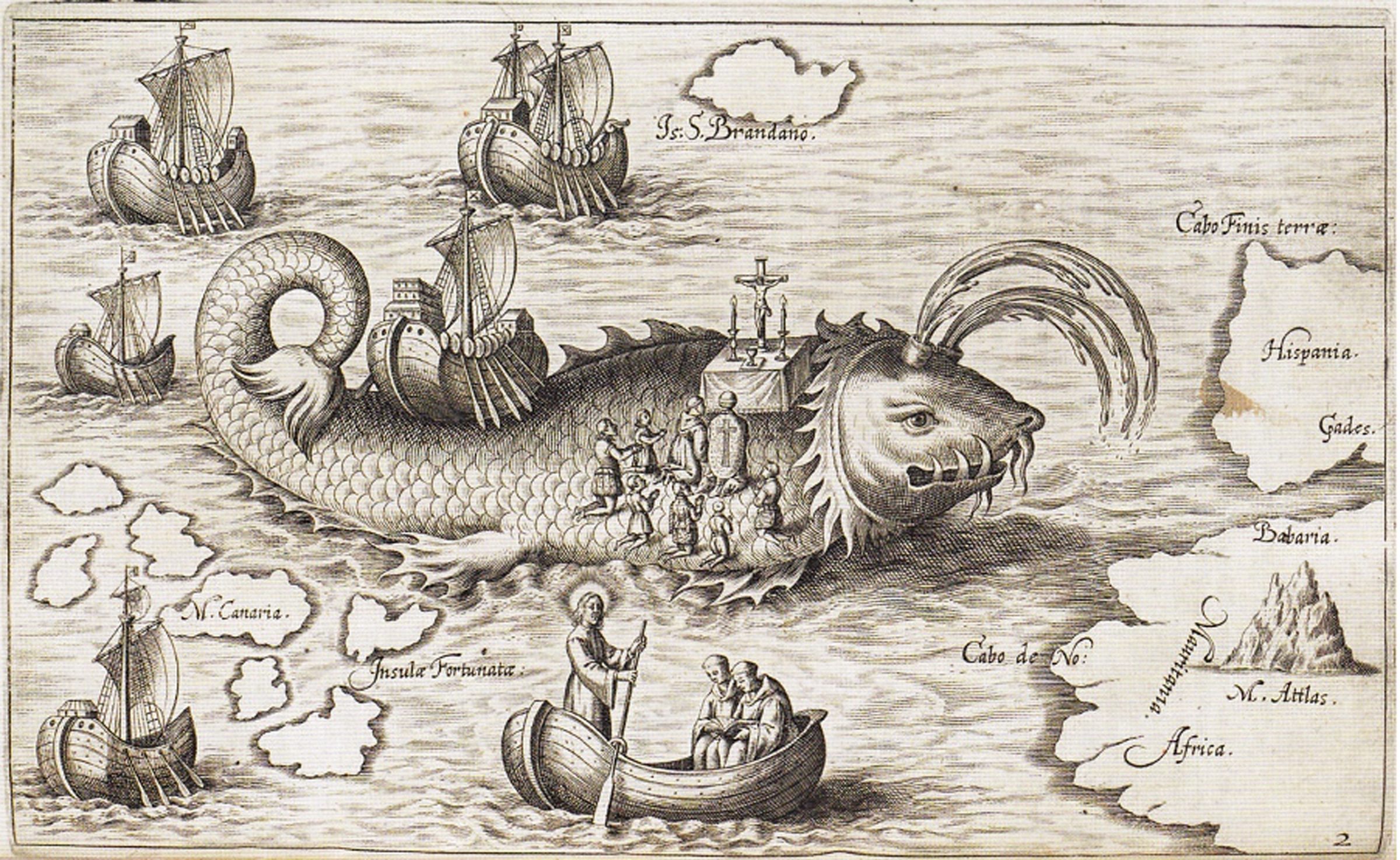
At this point, the balance of the scene shifts away from Posthumus to the Briton lord. Posthumus continues to speechify. His concern now is not with his story, but with what the lord thinks and feels about his story. If his account is a play-within-a-play, starring three bold heroes, he has gotten the reviews, and he does not like them. Notice that the theatrical analogy, which before was implicit (“performers,” “masks”), is now explicit. For no obvious reason, Posthumus seems to think that the lord would convert his epic into rhyming doggerel and “vent” it, put it on the market, as a ballad might be sold — or a play performed. And having made the analogy, Posthumus cannot escape it. The lord has not, in fact, rhymed, but Posthumus does, and not felicitously (“lane,” “bane”). His couplet seems lame alongside the lord’s stripped down, factitious observation. His great theme has been reduced to popular entertainment, and he has been brought low, too. “You have put me into rhyme” (63), he charges the lord, though, surely, he did this to himself. And, within a few lines, he is shedding his actor’s costume, and with it his British identity. “No more a Briton,” he says, putting on his Italian clothes, “I have resumed again/The part I came in” (75-76). Does Posthumus’ name associate him with the “part” of James I, as suggested? If so, this too implies a belatedness that plagues them both. Posthumus is posthumous: still living and already dead, an exemplar, perhaps, of a controversy — a “war for Britain” (3.5.26) — that has continued long past its expiration date.[96]
It is in its temporal indeterminacy, with before shading into after into now, that Cymbeline figures the stalled debate taking place offstage. Its first audiences see an idealized (and authorized) version of Britain founder upon their own wonder: “an instinctive recognition of difference” that meets the advent of this new Britain with awe, confusion — and also a stubborn, mostly unarticulated reserve. Britishness of this sort is novel, foreign, other. It engenders, as Colley might predict, “alarm” and “fatigue,” if not “disgust,” in the face of the “very strange.” Wonder was a frequent response of voyagers to the New World, “an almost inevitable component of the discourse of discovery.”[97] Yet here we see it on a London stage, and, I suggest, as a response from a mostly English audience to the ambitions of a Scottish king. Of course, Cymbeline was originally performed, we think, to chime with the investiture of James’ son Henry as, appropriately, the Prince of Wales and Britain, so it cannot have been that unsettling in its implications. But the acrimonious debate over a British union is still in the air. We sense its disturbance even in this “straitened” scene: it displaces the focus of attention away from the battle in the narrow lane and onto a dubious onlooker and his response to a British chronicle (a chronicle that is notably a fiction, composed of many other chronicles), soliciting an answering reaction from the onlookers offstage, mirroring it, and allowing them to find in the Briton lord a likeness of their own hesitancy, reluctance, and, no doubt, tedium. For the time of this scene, Cymbeline becomes a play about how sick you are of hearing about “Great Britain.” Shakespeare’s Globe becomes the venue in which you can join in the translation of this still potent political controversy into topical comedy, now staged for you. This is the “knowingness” to which Kerrigan alludes, but the “failure” it reflects is not only the king’s, but the audience’s, as the scene allows them to acknowledge. James’ British union is just too counter-intuitive, too “strange,” and his Britishness at odds, in some deeply felt way, with the constituents of Englishness, and with England, the kingdom that is pointedly never named. You know this, and so does Cymbeline.
****************************************************
This essay was finished on August 10, 2020. But it hasn’t reached its conclusion yet, and neither has Brexit. An agreement “at this point” is “unlikely,” says the EU’s chief negotiator, “[t]he time for answers is rapidly running out.”[98] My chief argument here has been that criticism, and so much else, shifts in its import with the passing of time, and that will be true of this piece, as well. Thanks to the generosity of our editors at EMCImprint, I will post an afterword to “Time to Leave” on or about May 31, 2023. If you would like to contact me in the meantime, you can do so here: criticism.and.crisis@gmail.com. I look forward to revisiting the fiction that, by then, this essay will have become.
“Back to the future; forward to the past.”[99]
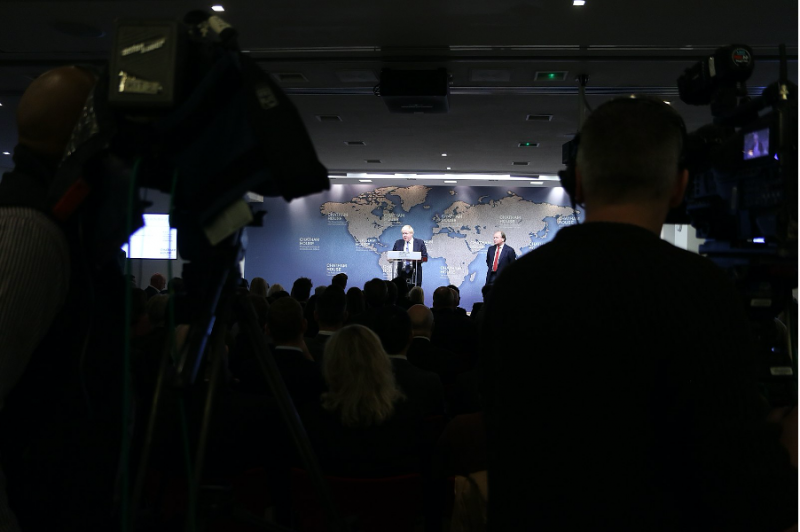
Thanks to Patricia Palmer, Willy Maley, Andrew Griffin, and Jonathan Goldberg for their comments on this essay.
Goldberg 505.
[20] Goldberg 505.
[74] For their responses to parts of this section, I thank the participants in the seminar on “Short Scenes in Shakespeare,” held virtually during the Shakespeare Association of America meeting in April, 2020.
